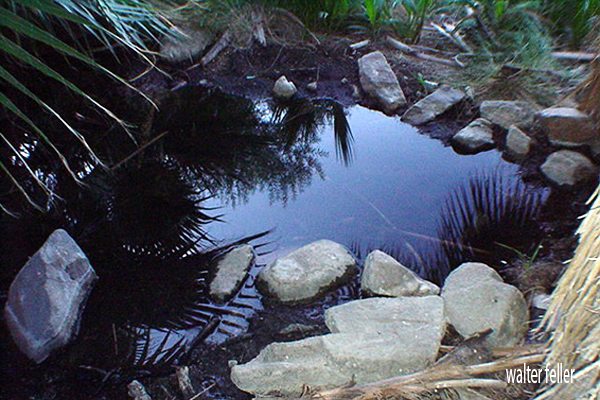Water in the Mojave Desert

Oasis of Mara 2006
A Precious Resource in a Harsh Environment
Introduction:
The Mojave Desert, located primarily in the southwestern United States, is renowned for its vast, arid landscape. This desert, covering parts of California, Nevada, Utah, and Arizona, is characterized by its extreme temperatures, sparse vegetation, and limited water sources. In this section, we will explore the significance of water in the Mojave Desert, its sources, conservation efforts, and the challenges faced by both wildlife and human populations.Water Sources:
Despite its scarcity, the Mojave Desert has some water sources. The most significant source is the Mojave River, which flows mostly below the surface through the region, providing water to various wildlife and plant species. Additionally, although limited in size, underground aquifers serve as crucial reservoirs. These aquifers supply water to wells vital for human settlements and agricultural activities. However, these water sources are highly vulnerable to depletion due to desert arid conditions.Wildlife and Water:
Water is a lifeline for the diverse range of wildlife that inhabit the Mojave Desert. Many species, including the iconic bighorn sheep, rely on natural springs and water catchments to sustain themselves. These oases provide drinking water and vital habitats for numerous plants and animals. However, as water availability decreases, these delicate ecosystems face significant threats, impacting the survival and biodiversity of the region.Conservation Efforts:
Recognizing the importance of water conservation, various organizations, and government agencies have implemented measures to preserve this precious resource in the Mojave Desert. Efforts include the construction of wildlife-friendly water sources, such as guzzlers and wildlife watering holes, strategically placed to support the survival of wildlife during dry periods. Additionally, initiatives promoting water-efficient practices, such as using drip irrigation systems and native landscaping, aim to reduce water consumption in human settlements.Challenges and Future Outlook:
The Mojave Desert faces numerous challenges in managing its water resources. Climate change, prolonged droughts, and increasing human demands pose significant threats to the region's fragile water balance. With the desert's growing population and tourism industry, water scarcity becomes even more critical. Sustainable water management practices, including water recycling, rainwater harvesting, and strict regulations on water usage, are essential for the Mojave Desert's long-term survival.Conclusion:
Water scarcity in the Mojave Desert is a reality that shapes the lives of both wildlife and human populations. As we navigate the challenges of preserving this precious resource, it is crucial to raise awareness about the importance of water conservation. By implementing sustainable practices and adopting a responsible approach to water usage, we can ensure the survival of this unique desert ecosystem and its invaluable wildlife. Together, let us strive to protect and preserve water in the Mojave Desert for generations to come.. . . In the desert, there is life.
